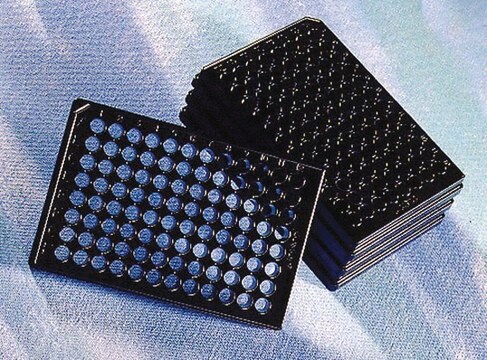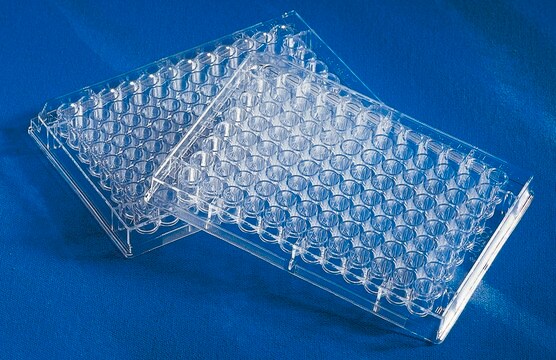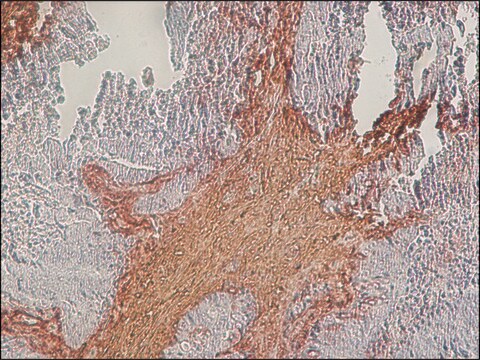MAB2035
Anti-Aggrecan Antibody
CHEMICON®, mouse monoclonal, MK-302
About This Item
Polecane produkty
Nazwa produktu
Anti-Chondroitin 6 Sulfate Antibody, clone MK-302, ascites fluid, clone MK-302, Chemicon®
pochodzenie biologiczne
mouse
Poziom jakości
forma przeciwciała
ascites fluid
rodzaj przeciwciała
primary antibodies
klon
MK-302, monoclonal
reaktywność gatunkowa
canine, sheep, rat, rabbit, mouse, bovine, human
producent / nazwa handlowa
Chemicon®
metody
ELISA: suitable
radioimmunoassay: suitable
western blot: suitable
izotyp
IgG1
numer dostępu NCBI
numer dostępu UniProt
Warunki transportu
dry ice
docelowa modyfikacja potranslacyjna
unmodified
informacje o genach
human ... ACAN(176)
Specyficzność
Immunogen
Zastosowanie
RIA at 1:100-1:200.
Chondroitinase ABC digestion prior to antibody reaction is required for antibody reactivity. {0.5U/mL in 100mM Tris-HCL, 30 minutes room temperature} A dramatic proteolytic digestion of the core protein (e.g. with papain or pronase) significantly reduces the antibody reactivity.
Optimal working dilutions must be determined by the end user.
Postać fizyczna
Informacje prawne
Nie możesz znaleźć właściwego produktu?
Wypróbuj nasz Narzędzie selektora produktów.
polecane
Kod klasy składowania
10 - Combustible liquids
Klasa zagrożenia wodnego (WGK)
WGK 1
Temperatura zapłonu (°F)
Not applicable
Temperatura zapłonu (°C)
Not applicable
Certyfikaty analizy (CoA)
Poszukaj Certyfikaty analizy (CoA), wpisując numer partii/serii produktów. Numery serii i partii można znaleźć na etykiecie produktu po słowach „seria” lub „partia”.
Masz już ten produkt?
Dokumenty związane z niedawno zakupionymi produktami zostały zamieszczone w Bibliotece dokumentów.
Nasz zespół naukowców ma doświadczenie we wszystkich obszarach badań, w tym w naukach przyrodniczych, materiałoznawstwie, syntezie chemicznej, chromatografii, analityce i wielu innych dziedzinach.
Skontaktuj się z zespołem ds. pomocy technicznej






